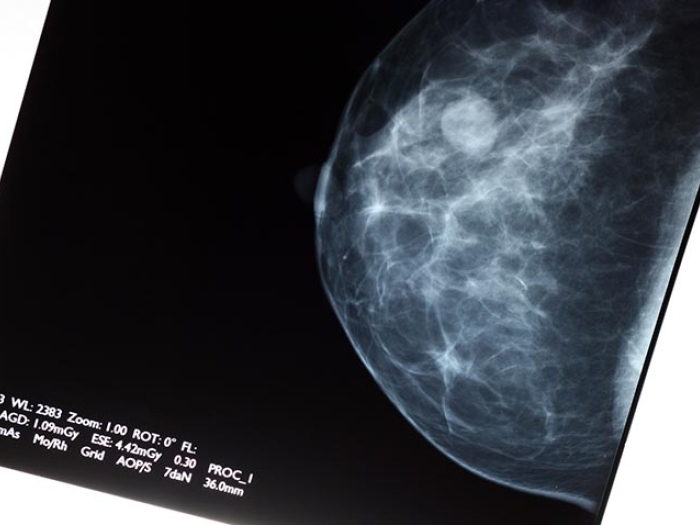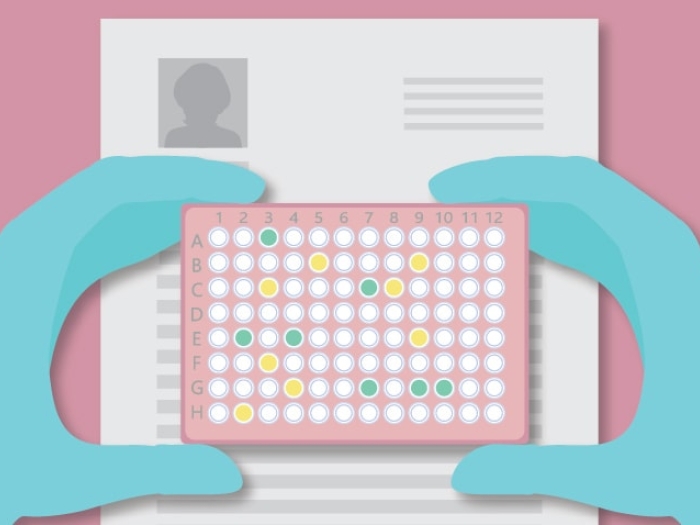A recommendation against contralateral prophylactic mastectomy did not increase the likelihood of patients seeking a second opinion or receiving surgery from a different surgeon, a study finds.
11:00 AM
Author |

More women with breast cancer are electing to have both breasts removed, even when cancer affects only one breast. But contralateral prophylactic mastectomy is a more complex surgery that has not been shown to improve survival.
MORE FROM THE LAB: Subscribe to our weekly newsletter
A new study from the University of Michigan Rogel Cancer Center examines the complex interaction between patients' desires for the most extensive treatment and surgeons' responsibility to minimize harm.
The population-based survey, published in JAMA Surgery, found that few patients sought a second opinion or went to a different hospital when their surgeon recommended against CPM. Further, patients were overwhelmingly satisfied with their treatment, even when their surgeon dismissed CPM with little discussion.
"We hypothesized that patients whose first surgeons recommended against CPM might report less satisfaction and might be more likely to seek second opinions and pursue surgery by a second surgeon," says the study's lead author, Steven J. Katz, M.D., M.P.H., professor of medicine and of health management and policy at the University of Michigan. "But in this study, an initial recommendation against CPM had little impact on overall satisfaction with treatment or on decisions to pursue or act on a second opinion."
The study is the first to explore what transpires after a patient newly diagnosed with unilateral breast cancer first meets with a surgeon to discuss her options.
The survey asked 1,140 patients who considered CPM about the extent to which CPM was discussed during the first consult; their satisfaction with their surgery decisions; whether they received a second surgical opinion; and whether a second surgeon operated.
Key findings
In this large, diverse sample of women newly diagnosed with unilateral breast cancer, about half considered CPM. A quarter of those patients reported that their surgeon recommended against CPM; an additional 30 percent reported no substantial discussion about CPM.
SEE ALSO: Study Finds 'Striking' Use of Double Mastectomy
In general, dissatisfaction with the surgical decision was uncommon — just 7.6 percent of respondents.
And dissatisfaction was very low — 4 percent — among patients whose surgeons discussed CPM but did not recommend against it. Although still relatively low, the level of dissatisfaction was significantly higher, 15 percent, in instances where the surgeon recommended against CPM with no substantive discussion of the option.
One in 5 respondents sought a second opinion, and 1 in 10 patients went on to have surgery from a second surgeon. Women whose first surgeon recommended against CPM were not more likely to seek a second opinion or to receive surgery from a second surgeon.
Patient and provider perspectives
This is the latest in a series of studies by the Michigan Medicine-based Cancer Surveillance and Outcomes Research Team, examining both breast cancer patient and provider perspectives on treatment decision-making in general and issues of potential overtreatment in particular. It is the first to capture information about the newly diagnosed patient's first surgical consult.
"The increased attention to and preference for CPM among patients for whom it is not a clinical imperative is a relatively recent phenomenon," says Katz. "It's one of many considerations on the minds of patients we know are understandably anxious and who may feel they need to make treatment decisions quickly after diagnosis."
Katz notes that doctors are looking for guidance on how to address patients' concerns and respect their wishes without exposing them to more extensive treatment than medically called for or losing them to another surgeon.
"About 95 percent of breast cancer patients are treated by the first surgeon they see," says Katz. "It's so important in those initial consultations that the patient and the surgeon feel free to discuss all of the options and work together to determine the best path forward."
Although more research is needed to develop and test tools to help facilitate these crucial conversations, in the meantime Katz thinks this research should provide some reassurance to surgeons. "It demonstrates that recommending against CPM won't necessarily result in patients second-guessing the treatment choices they make in partnership with their primary surgeon," he says, "or looking elsewhere for advice or care."

Explore a variety of healthcare news & stories by visiting the Health Lab home page for more articles.

Department of Communication at Michigan Medicine
Want top health & research news weekly? Sign up for Health Lab’s newsletters today!





